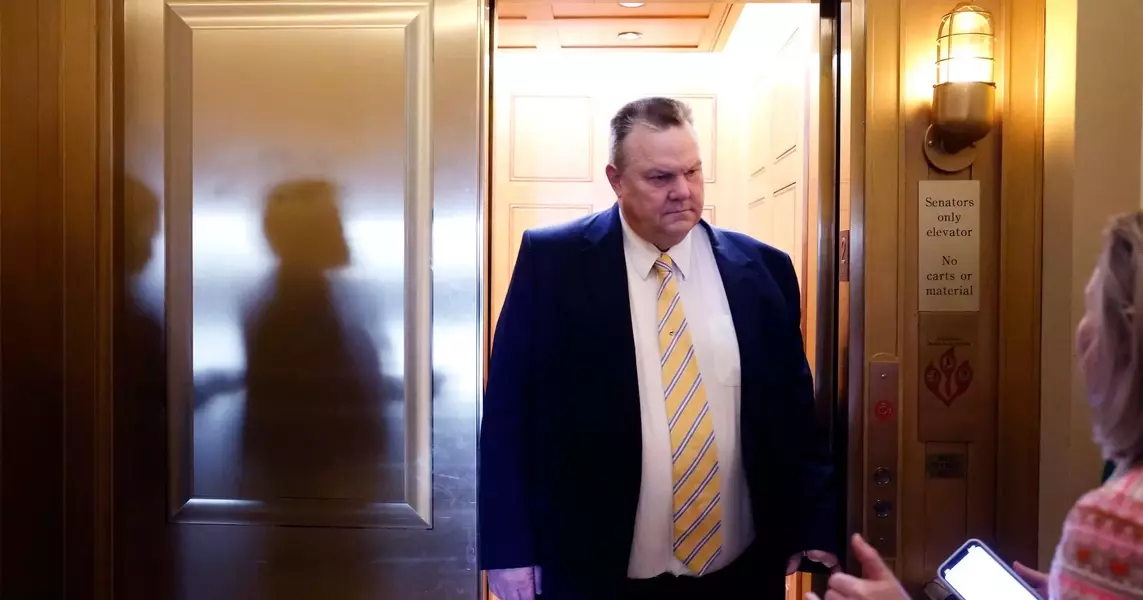Democratic senators are crushing their GOP opponents in the money race. They’re still likely to lose their majority.

The Uphill Battle for Senate Democrats: Fundraising Dominance Fails to Secure Majority
As the 2024 campaign season reaches its climax, Democratic incumbents and candidates in the country's most competitive Senate races have been outraising their Republican opponents by significant margins. However, this financial advantage may not be enough to overcome the challenging political landscape that Democrats face in their quest to retain control of the upper chamber.Fundraising Prowess Fails to Translate into Electoral Victories
The Uphill Climb for Democrats
Despite their impressive fundraising hauls, Democrats are still facing an uphill battle in their bid to maintain their slim Senate majority. The party's candidates have been consistently outperforming their Republican counterparts in the money race, with some raising up to four times as much as their opponents. However, this financial edge has not necessarily translated into electoral success, as the political landscape remains unfavorable for Democrats.The primary reason for this disconnect is the challenging map that Democrats are facing in the 2024 Senate elections. With roughly a third of the Senate up for grabs every two years, the current cycle presents limited opportunities for Democrats to expand their majority, while leaving them largely on the defensive. Several key states, such as Montana and West Virginia, are expected to flip to the Republican column, further complicating the Democrats' path to retaining control.
Moreover, the rise of self-funding wealthy candidates and the influx of super PAC spending have allowed Republicans to make up some of the fundraising gap. In states like Wisconsin and Pennsylvania, Republican candidates have poured millions of their own money into their campaigns, while outside groups have also stepped in to bolster the GOP's efforts.
The Crypto Industry's Influence
One particularly notable example of the impact of outside spending is the case of Ohio, where a pro-crypto super PAC has spent upwards of million on ads supporting the Republican candidate, Bernie Moreno. This spending has helped to tighten the race, even as the Democratic incumbent, Sherrod Brown, has maintained a fundraising advantage.The crypto industry's involvement in this race highlights the growing influence of special interests in shaping the political landscape. As the Senate Banking Committee chair, Brown has been a vocal critic of the cryptocurrency sector, and the industry's efforts to support his opponent suggest a desire to install a more favorable voice in the upper chamber.
This dynamic underscores the complex interplay between money, politics, and policy, and the challenges that Democrats face in translating their fundraising prowess into electoral success. Even in states where they have a clear financial advantage, external factors, such as the crypto industry's involvement, can tip the scales in favor of the Republican candidates.
The Montana Conundrum
Perhaps the most striking example of the Democrats' fundraising dominance failing to translate into electoral success is the case of Montana, where long-serving Democratic Senator Jon Tester is facing a tough challenge from his Republican opponent, Tim Sheehy.Tester, who has previously won re-election in 2012 and 2018, has once again outraised his opponent, bringing in .1 million compared to Sheehy's .7 million. However, recent polls have shown Tester trailing Sheehy by several points, a result that would have been unthinkable in the senator's previous campaigns.
The culprit behind this shift may be the ongoing decline in "ticket-splitting," a phenomenon where voters choose candidates from different political parties in the same election. As polarization and partisan sorting have intensified, a growing share of the electorate is now simply voting for one party all the way down the ballot, making it increasingly difficult for Democrats to win in conservative-leaning states like Montana.
Despite Tester's fundraising advantage and his ability to consistently outperform the Democratic presidential nominee in the state, the changing political dynamics may ultimately prove too much for the veteran senator to overcome. This scenario underscores the limitations of money in politics and the importance of understanding the broader political landscape.
The Path Forward for Democrats
As the 2024 Senate elections approach, Democrats face a daunting challenge in their quest to retain control of the upper chamber. While their fundraising prowess has been impressive, it has not been enough to overcome the structural disadvantages they face in the current political environment.To improve their chances, Democrats will need to focus on crafting a compelling message that resonates with voters, while also leveraging their financial resources to build robust campaign infrastructures and engage with their base. Additionally, they will need to find ways to counter the influence of outside spending and self-funding candidates, which have allowed Republicans to make up some of the fundraising gap.
Ultimately, the 2024 Senate elections will be a true test of the Democrats' political acumen and their ability to navigate the complex interplay of money, messaging, and voter sentiment. While their fundraising dominance is undeniable, the party must find a way to translate this financial advantage into tangible electoral victories if they hope to maintain their hold on the Senate.